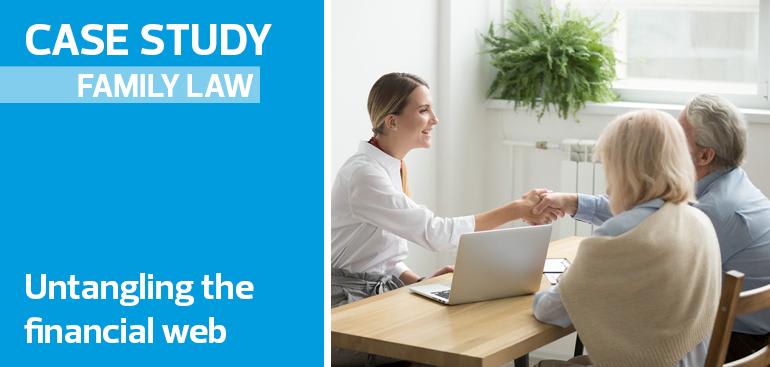If you run an SME, you need to take steps to safeguard your assets from creditor claims, accidents, lawsuits, financial challenges and insolvency.
These assets might include personal possessions such as property, cars, stocks and money, as well as business assets such as cash on hand, buildings, equipment, and inventory.
While insurance can provide some level of risk protection for these assets, no insurance can cover every possible scenario. Rather than wait until it’s too late, it’s best to understand what asset protection is and how it applies to your business so you can make informed decisions.
We spoke to Greg Dudley, RSM Partner Restructuring and Recovery, who has over 30 years of experience in asset protection. Greg has significant exposure to industry sectors including retail, agricultural, resources, building and construction, manufacturing and mining. He shared his valuable insights about asset protection for both new and established businesses
FAQ's
“Asset protection is crucial in business because making money means taking a level of risk. The more money you make, the more risk you usually take. So asset protection is important, not just for individual directors, but also from a company's perspective. You have to implement good practices and procedures that mitigate risk.
Asset protection is a matrix because it involves various structures and practices, tailored to different circumstances and timings. All of these things need to be taken into account to create a successful asset protection strategy.”
“The type of business structure you operate can affect your level of exposure. So it needs to be factored into your asset protection strategy.
For example, starting as a sole trader exposes you to personal liability, whereas transitioning to a company structure shifts liability to the company. With more complex setups involving entities like corporate trustees, you can enhance protection.
Ultimately, there's no one-size-fits-all solution. It's an ongoing process of evaluation and adjustment to ensure your structure aligns with your current situation.”
“Reviewing your asset protection strategy regularly is important. You should do it, at the very least, annually. You should also review it when your circumstances change significantly. Events such as marriage, divorce, or a major purchase can impact the level of risk you face and the best way to mitigate it.
Understanding how the law operates concerning timing is vital too. Let’s say, for instance, you own your house solely in your name. If you face liabilities as a director or sole trader, or you have given personal guarantees, that house is at risk. Naturally, you may think transferring it to someone less vulnerable is a smart move. However, four years needs to pass without a solvency issue before such a transfer protects the asset. So you need to factor that into the timing as well.
The earlier you act to safeguard your assets, the more protected you will be. I always say that tomorrow is the best day to start securing what you've got.”
“Personal circumstances heavily influence asset protection strategies. For instance, in business, when you're starting off and relying on trade credit, you often need to give personal guarantees as a director. However, as your business grows and you become more important to your supplier, you can renegotiate to release these personal guarantees.
This is true with other aspects of business as well, such as obtaining finance from a bank or lender. Initially, they may require extensive security, but over time as your circumstances improve, you can reduce your exposure.”
“While some strategies can achieve both tax efficiency and asset protection, they're not always aligned. In fact, quite often it’s the opposite.
The more tax-effective the approach, the worse it can be for asset protection, and vice versa. Those comfortable with higher risk may prioritise tax efficiency over asset protection, keeping valuable assets within risky entities. On the other hand, those more risk-averse tend to separate assets from risky entities, sacrificing some tax benefits for greater safety.
It's about finding the right balance that aligns with your financial goals and risk tolerance. Making sure to factor in risk management with your tax strategy is really important.”
“There are many misconceptions about asset protection. Some of the most common I come across include:
“Asset protection is too expensive and time-consuming.” This is especially common with SMEs. Business owners believe that asset protection is too difficult or costly to implement. Ten years later when things do go wrong, they regret not taking proactive steps earlier on.
“The house is in my partner’s name, so it is protected.” Just because your house is in your partner’s name, does not automatically protect it. If you’ve moved it into your partner’s name while you’ve got solvency issues, or you are paying the mortgage for example, it’s not protected. It’s always important to check with an expert before making assumptions like this.
“I'm a director, but I'm not active in the business.” Directors, regardless of their level of involvement, still bear legal responsibilities and liabilities. Assuming that, just because you’re a director who isn’t working in the business you are protected, can lead to severe consequences.”
“While all industries have unique challenges, the core principles of asset protection remain consistent across every sector. Take the construction industry, for example. Personal guarantees are incredibly common. In fact, they are so common that many business owners say they are necessary. This isn’t true.
Just because something is common in your industry doesn’t make it an effective strategy. You still have a choice to explore other options that reduce your level of exposure.”
"If you’re just starting to consider your asset protection needs, my advice is to seek professional advice. You have to understand what your options are so you can make informed choices to mitigate risks effectively.
Yes, there are costs involved. But asset protection offers peace of mind. It's about separating value from exposure and ensuring financial security for yourself, your family and your business.”
Ready for a free, confidential chat? We’re here to help.
If you need help developing and implementing a robust asset protection strategy, we can help.
Our experienced team can outline your options so you can make informed decisions that protect you from risk. Contact us for a free, initial call.
If you or anyone you know is experiencing financial distress and needs mental health support, please contact:
- Lifeline on 13 11 14
- Beyond Blue on 1300 224 636
- Headspace on 1800 650 890





